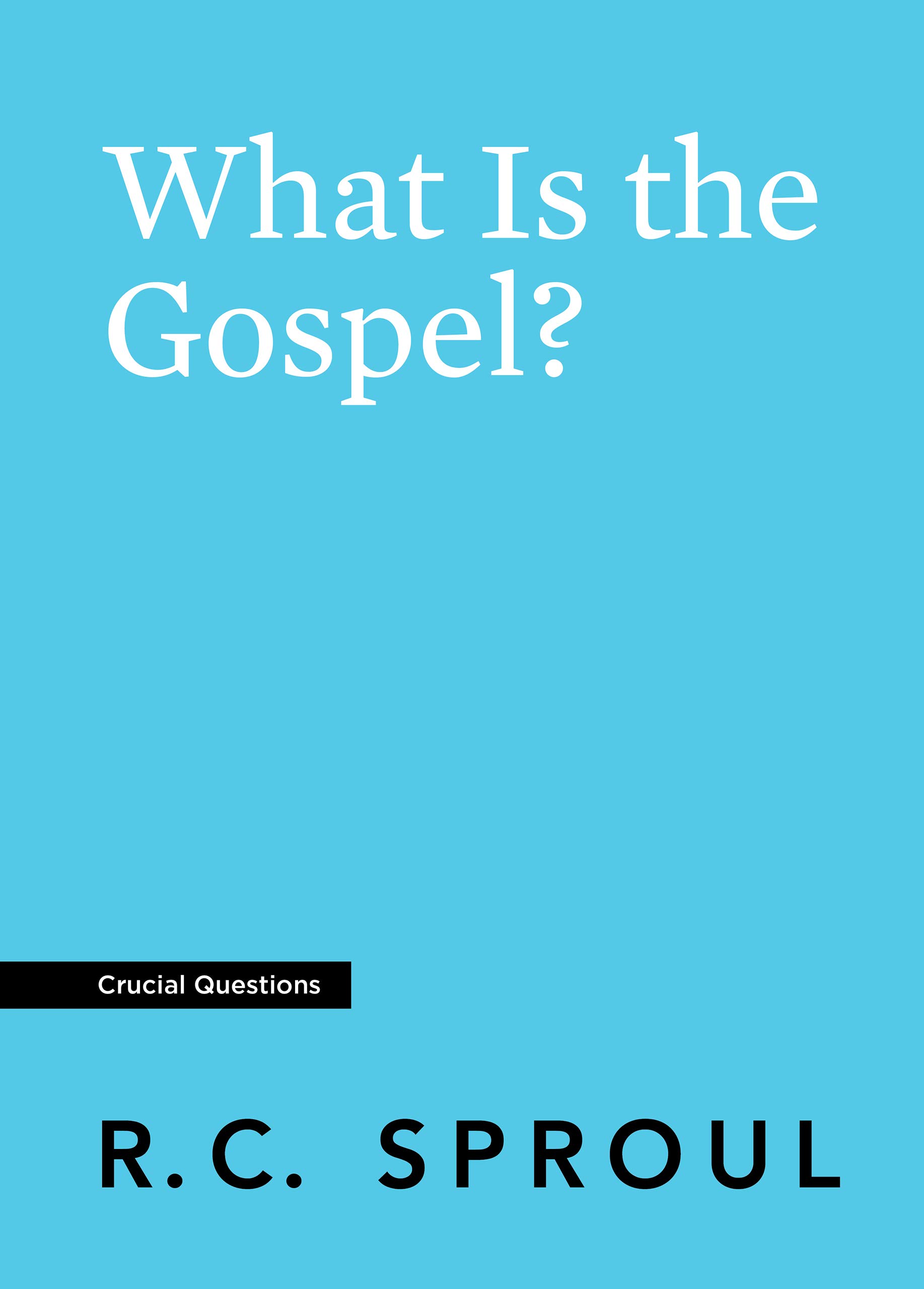In this new book in R.C. Sproul’s Crucial Questions series (all of which are free in the Kindle edition), he looks at the important issue of the gospel. We often talk about the gospel, but if asked, would we be able to tell someone just what the gospel is? The gospel isn’t our personal testimony, for example.
Sproul indicates that there is perhaps no more important question for us to answer than what the gospel is, because the answer we give will help to determine our eternal destiny. The gospel tells us how we can be saved from our sin. It is therefore crucial that we search the Scriptures carefully in order to clearly articulate what God tells us about how we may be saved.
Sproul writes of two meetings of evangelical leaders in the late 1990’s. As a result of the meetings, a unified statement of faith was drafted in order to restore unity among evangelicals, particularly in the understanding of justification. The document is called “The Gospel of Jesus Christ: An Evangelical Celebration,” and it is divided into two parts. The first part is a summation of the key points that were affirmed. It explains the gospel in the language of the laity, avoiding technical theological statements. The second part provides a statement in more precise theological language, following the format of affirmations and denials. This book explores the affirmations and denials in order to provide a clear articulation of the message of the gospel.
Among the topics addressed in this book are justification, sanctification, the deity of Jesus, the person and work of Jesus, the resurrection of Jesus, imputation, evangelism, doctrine and repentance.
Sproul had the gift of being able to communicate theological subjects in a way in which the layperson could easily understand. This would be an excellent book to read and discuss with a new believer about what the gospel is, and isn’t.
Below are some of my favorite quotes from the book:
• The gospel’s authority rests on God and God alone.
• If we understand that God is just and we are not just, then the question of how an unjust person can be justified in the sight of a holy and just God becomes the most important question we will ever deal with.
• We affirm that Christ is the only way of salvation because He alone in His person has the credentials necessary to do the work of mediation that must be done to bring about reconciliation.
• There’s only one God, and God has only one Son, and there’s only one Mediator between God and mankind.
• The Bible offers no hope that sincere worshipers of other religions will be saved without personal faith in Jesus Christ.
• Evangelism is never optional for the church.
• The content of the gospel as we find it in the New Testament focuses on the person and the work of Jesus Christ. And though we distinguish between the person of Christ and His work, we dare not separate them.
• A confession of the full deity of Jesus Christ is foundational and essential to gospel faith.
• The gospel, therefore, is not just a message about the death of Christ; it’s also a message about the life of Christ. Both the life of Christ and the death of Christ are necessary for our salvation.
• To believe the gospel is to despair of ever living righteously enough to satisfy the demands of God’s justice and instead to trust in and rely on what Christ did for us in His life as well as in His death.
• If you deny the real bodily, historical resurrection of Christ, you have denied the very essence of the gospel.
• If we don’t understand justification, we don’t really understand the gospel.
• In our justification, there is a double imputation. On the one hand, our guilt is imputed or transferred to Christ, and on the other, His righteousness is imputed to us.
• Without this doctrine of imputation, you don’t have the gospel, for the gospel stands or falls on this idea of the transfer of Jesus’ righteousness to our account.
• The lifelong process by which we are made holy and brought into conformity to the image of Christ, which begins at the moment of our justification, is called sanctification.
• Sanctification is a lifelong process that is not completed until we die and enter into what the Bible calls glorification. Glorification is the conclusion to the lengthy process of sanctification.
• Sanctification involves ongoing repentance.
• The Christian life is a penitent life, because as long as there remains sin in our lives, the need for confession and turning from that sin remains.
• To be saved, someone has to actually agree in his mind that the statements about Jesus and about His work are true.
• We are justified by faith, by the possession of authentic faith, and not by its mere profession.
• Doctrine doesn’t save us, but it is vital for spiritual health and well-being.
• To reject the gospel after hearing it is to embrace spiritual ruin and to stand exposed to God’s judgment.

